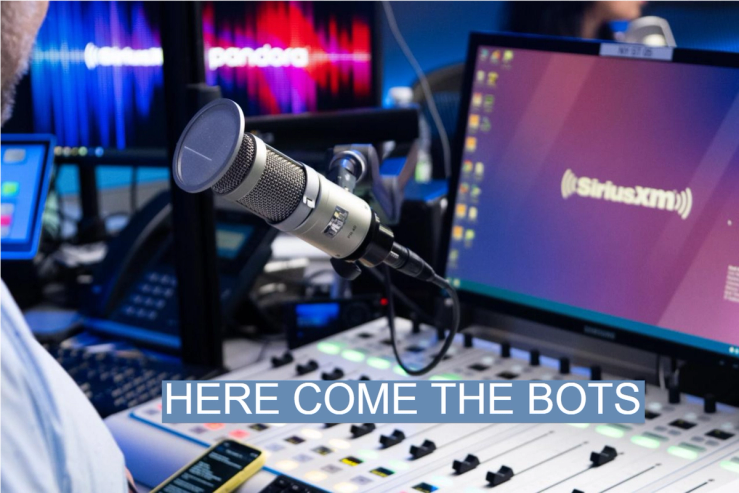The News
Earlier this year, PJ Vogt received a strange proposition: If he paid a few dollars to a small self-described media buying company, his new podcast, Search Engine, would be boosted to the top of the podcast charts.
An online audience company called iBoostReach — which works largely with a series of fitness and personal finance influencers, but has also claimed to work with Warner Music Group — was offering thousands of downloads, and a representative for iBoostReach offered to prove its effectiveness by boosting the downloads on Search Engine’s trailer episode.
The proposition immediately raised red flags for Vogt, the former co-host of Reply All, and his team, he told Semafor. They had contracts with advertisers and agreements to reach certain download targets organically. While iBoostReach did not specify how it would immediately deliver thousands of downloads to the show, Vogt said he was concerned that an arrangement like that would mislead advertisers.
“It’s a tough industry right now. People will do things out of fear they wouldn’t have done out of greed,” Vogt said. “I hope everyone ignores these people and that they go away.”
In this article:
Know More
Vogt’s experience reflected one of the dirty secrets of the podcast industry, whose growth has come with a wave of growing pains and a shift from hazily-measured host-read advertising to tactics more familiar to the shadier parts of the online ad market.
iBoostReach is part of a cottage industry that has emerged as podcasting has grown in recent years. When Semafor sent the company’s website around to a series of podcast executives, talent agents and hosts, many said that they were not surprised that this business exists, and said major podcast advertisers and audio companies have increasingly worked to spot inflated podcast numbers.
“The two places where it really gets used most are to satisfy a talent’s ego, or to satisfy an advertiser who isn’t really looking too closely at the numbers,” one podcast exec told Semafor.
It’s a topic that is clearly on the minds of some of the top figures in the audio business. In August, the podcast company Libsyn reportedly hosted several briefings for podcast agents to discuss podcast fraud and how to spot audience numbers that have been artificially inflated.
The techniques listed during the sessions are some of the same ones that the major audio companies use to regularly analyze sources of downloads. A podcast executive familiar with the practice told Semafor that iHeartMedia has often examined downloads to see if a large number were coming through the web browser Mozilla Firefox. The audio company believed that disproportionate traffic from this source as a sign that a host or show may be deliberately attempting to juice downloads in order to get an order for another season or a better deal.
But even some major publishers have bought downloads from shady places in recent years. In 2022, Bloomberg reported that the New York Post and iHeartMedia had both purchased ads that played episodes of podcasts during some online video games, boosting the number of podcast downloads — even if they were playing to gamers who were not particularly interested in those podcasts.
“Concerns about ad fraud aren’t new,” Magellan AI CEO Cameron Hendrix told Semafor. “That’s why the industry has ad delivery measurement standards. Filtering out bot traffic is already part of that standard, but there are definitely ways to improve.”
Max’s view
The prize in the new game of manipulating podcast data is reaching the top of Apple’s podcast charts, which receive free promotion to iPhone users. Paying to boost a show to stay on the charts for a few weeks or a month could increase awareness or help a show maintain relevance even without new episodes.
Most clients listed by iBoostReach are influencers whose brands rely on the idea that they have large, enthusiastic audiences. A move to inflate podcast numbers for ego or greater visibility on the podcast charts might be a bit embarrassing, if not actually unethical, as long as they don’t have advertisers to satisfy.
But the real victims of this practice are marketers, who will increasingly face distortions in audio that have plagued other forms of digital advertising. And as the amount of money in podcast advertising continues to grow, it presents a clear challenge for advertisers.
Notable
- While some online audio companies said they are “definitely seeing a higher volume” of ad fraud on podcasts, it’s a tiny slice of ad fraud globally, and experts are “skeptical that there’s a significantly scaled, deliberately nefarious ad fraud scheme.
- A report released at Cannes this summer from the Association of National Advertisers found that digital advertisers are still spending tens of billions of dollars to place ads on “low-quality” websites.


